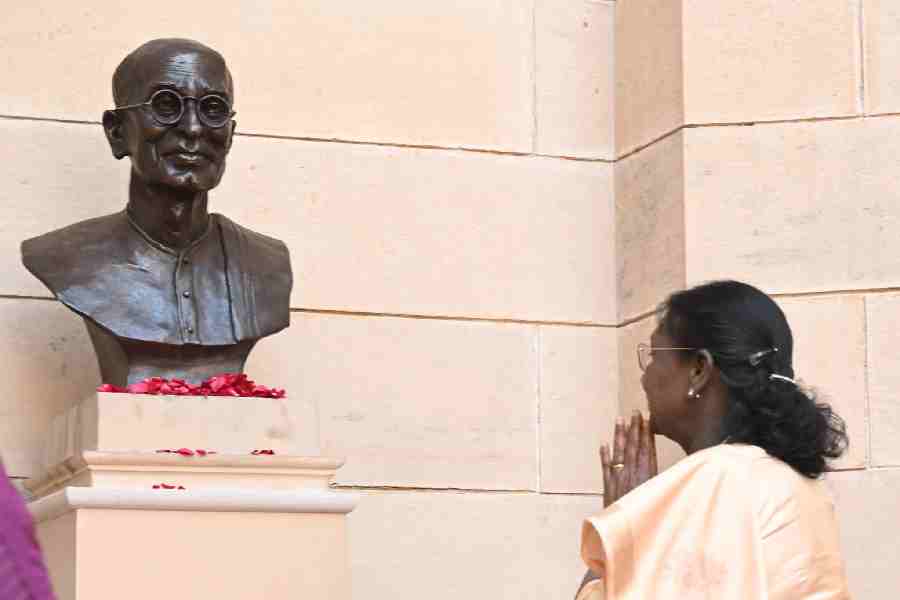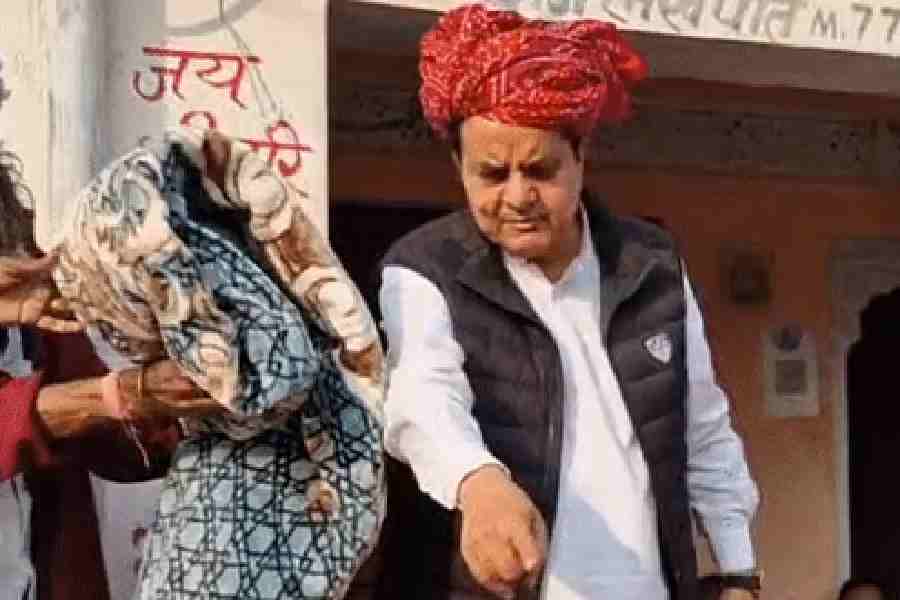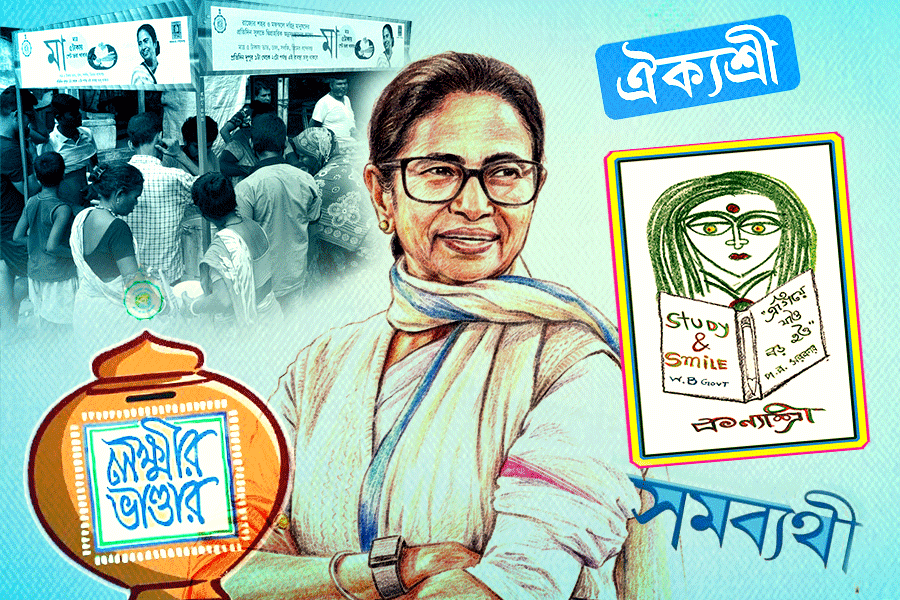Right fit
Sir — Parenting these days is stretched by work schedules, financial pressures, and limited time. Children often need more attention than working parents can provide. Grandparents have experience, patience and fewer distractions. They can listen, guide and support children in ways that busy parents cannot. Their presence gives children stability and a wider sense of family. It also prevents the mistakes of pushing ambitions or neglecting emotions. In many households, grandparents are already filling these gaps. Their role should not be treated as optional. Families and communities must recognise that grandparents are essential partners in raising balanced and confident children. This is better both for the ageing and the young.
A.G. Rajmohan,
Andhra Pradesh
Blanket ban
Sir — The ban on meat during Navratri in parts of Madhya Pradesh has raised questions of fairness and practicality. The festival may call for strict vegetarian observance among some but enforcement by law denies others their cultural and dietary traditions. Adivasi rituals include animal sacrifice, and many communities continue to rely on meat and fish for daily sustenance. These blanket restrictions ignore the diversity of practices in the state. Faith should not dictate official orders that disrupt livelihoods and personal freedoms.
Ireima Imsong,
Imphal
Sir — The latest ban on meat sales is less about faith and more about optics. Authorities know enforcement is weak, yet they issue notifications to project cultural purity. The irony is that multinational fast-food outlets remain unaffected while small butchers and fisherfolk lose their income. If protecting sanctity is the real aim, then the double standard of exempting large businesses exposes the hollow nature of these restrictions. What thrives instead is hypocrisy, as customers travel outside city limits for the same food.
Fateh Najamuddin,
Lucknow
Sir — Madhya Pradesh has a long tradition of diverse diets. The needs of the urban elite do not erase the habits of Adivasi or Dalit households that form a significant share of the population. Bans on meat are attempts to impose uniformity in a state that has always resisted such pressure. These measures do not succeed because food is more than ritual; it is survival, commerce, and identity.
Brij B. Goyal,
Ludhiana
Sir — There is a case for restrictions on some kinds of food in temple towns during major festivals. Local sentiment often favours vegetarian food near places of worship, and such customs deserve respect. However, the logic weakens when municipal corporations extend bans across entire cities. The result is arbitrary disruption to trade without a real increase in religious sanctity. Public order can be maintained with targeted guidelines near shrines. A blanket prohibition is not sensitive governance but heavy-handed regulation with poor practical outcomes.
Birkha Khadka Duvarseli,
Siliguri
Uneven reforms
Sir — The Supreme Court has chosen caution on the Waqf (Amendment) Act, 2025 by balancing legislative authority with temporary safeguards. The controversy is not about whether waqfs require reform but about the manner in which reforms are executed. History shows repeated attempts to improve waqf management, from 1954 to 2013, yet inefficiencies persist. This time, the inclusion of women and Pasmanda groups signals a shift towards internal democratisation. The reforms must be guided by trust and inclusivity rather than suspicion, or they risk repeating the failures of past efforts.
Anil Bagarka,
Mumbai
Sir — The Waqf (Amendment) Act, 2025 has stirred unease largely because the State is leading the reforms. Critics forget that many Muslim-majority countries have long placed waqf administration under government control without undermining faith. The problem lies less in State involvement and more in the lack of clarity about rules, representation, and safeguards. Reforms can succeed if they empower communities instead of centralising power. If the participation of ordinary Muslims is ensured, the law could become a turning point for efficiency and equity in waqf administration.
Arun Gupta,
Calcutta
Political grant
Sir — The West Bengal government’s financial support to Durga Puja clubs has been framed as cultural patronage. In reality, it is political investment. The rising grants, electricity rebates, and licence waivers are less about art and more about ensuring local loyalty. These clubs already function as parallel authorities in neighbourhoods. Public money channelled through them only strengthens unaccountable power structures. Durga Puja should not become a political theatre where taxpayers unknowingly underwrite the ruling party’s grip on local committees.
Asim Boral,
Calcutta
Sir — Durga Puja is an economic engine for Bengal, and support from the State should not be dismissed outright. Grants for smaller Puja clubs can keep traditions alive that corporate sponsors often ignore. The creative economy is vast but its benefits are not evenly distributed. While larger committees attract advertising, modest neighbourhood celebrations struggle. A State contribution, if audited and transparent, can prevent cultural homogenisation. The danger lies in lack of oversight. Support is valid, but with accountability.
Ishan Nandi,
Calcutta
Sir — Durga Puja subsidies in Bengal appear cultural. But, in reality, they function as political patronage, strengthening local clubs’ unchecked power and eroding the festival’s sanctity.
Kiran Agarwal,
Calcutta










